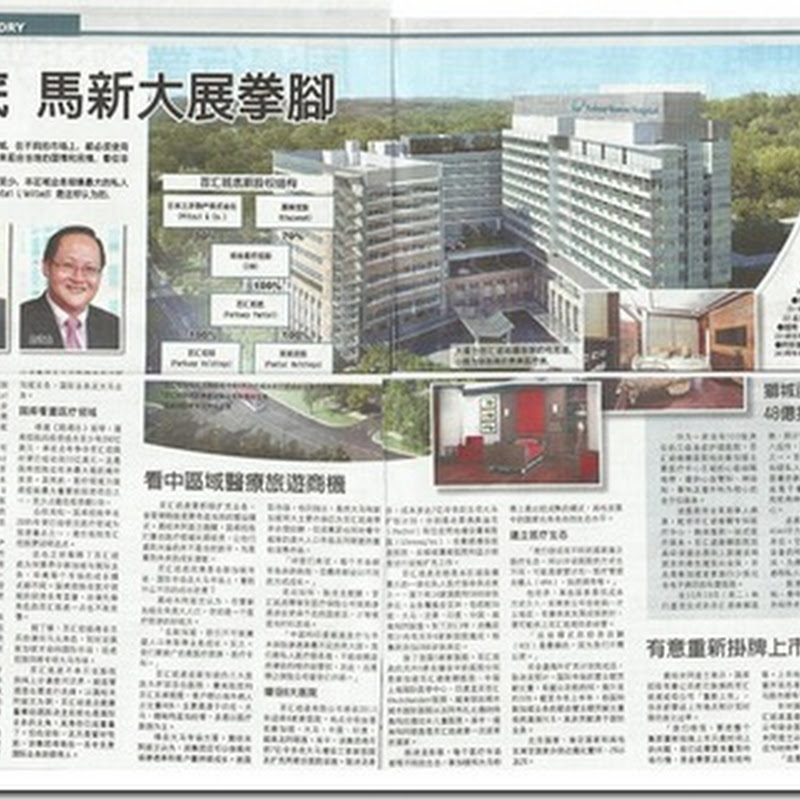Maxis Bhd’s move to become an “integrated player” are raising concerns that it could entail significant capital expenditures. For now, there is a lack of clarity on the matter.
With Maxis still in its early stages of this new strategy, it is understood that the telco is evaluating various options of the new investments to be made.
The options being mulled by Maxis include whether to adopt a build or lease model and whether to finance the new investments through capital or operational expenditures (capex or opex).
More clarity, Maxis officials say, will come when the company announces its first quarter results for the year ending Dec 31, 2010, which will be announced on May 31 2010.
The question of how Maxis funds this push to widen its services is very relevant to Maxis investors because it could potentially eat into the stock’s most attractive feature – its dividend-paying ability.
Maxis, which already enjoys a relatively high valuation, not only when compared with other telco’s in the country, but also regionally and internationally, churns out a significant amount of cash flows and enjoys healthy EBITDA (earnings before interest, tax, depreciation and amortisation) margins.
The question is, will the new strategy impact this negatively?
Dividends are typically paid from free cash flows, which are essentially the company’s EBITDA minus capex. Hence, if capex goes up, then Maxis’ dividends could be impacted.
And if Maxis chooses to increase its opex, that too could impact its dividend paying ability. Opex is essentially what you have to spend in order to keep your business running and is deducted from revenues. That means it impacts the profits of the company.
Maxis’ chief financial officer Rossana Rashidi had said that the company’s capex is expected to taper off post-2010 because by then, lumpy expenditures such as rolling out its mobile broadband footprint, in terms of coverage and capacity, would have been done.
But will this still hold, considering that Maxis is now saying it wants to morph into a fully-integrated player, one that is able to serve all the needs of its customers, especially those from the higher segment of the market?
It is certainly a concern. How much will the new investments cost?
On the other hand, we are confident that Maxis will not get carried away and that is based on the track record of this company. Still, more clarity is needed.
As it stands now, Maxis is highly rated. At its current share price of RM5.30 a piece, Maxis is valued at an enterprise value to EBITDA (EV/EBITDA) multiple for 2010 of more than 9 times. This is higher than regional peers, which average under between 6 and 7 times. Some Indian and Chinese telco’s trade at EV/EBITDA’s of around 4 times. On a price earnings (PE) multiple basis, too, Maxis’ valuation is high: at more than 19 times its FY2009 earnings, compared to its peers. DiGi.Com trades at 16 times its 2009 earnings while SingTel’s PE is only 12.4 times 2009 earnings.
However Credit Suisse is bullish on Maxis. A report dated Feb 25 wrote that it continued to rate Maxis as an “outperforming” stock, and gave it a discounted cash flow-based target price of RM6.60.
The major shareholders of Maxis have indicated that they expected dividends to amount to at least 50 sen a year from FY2010 onward. As this message becomes increasingly clear to the market, it expects Maxis to be rerated accordingly. Its Y2010-2011 projected net dividend yield of 9.1% for Maxis is the highest among the Malaysian stocks under Credit Suisse’s coverage.
The bullish report went on to state that in a blue sky scenario (a term used to describe a situation when everything works out nicely). Maxis could be valued at RM8.20.
A similar bullish view is shared by CLSA.
It believed management can reward shareholders with yields of between 9% and 10% per annum. While Maxis has been spending aggressively on capex (which doubled on a quarter-on-quarter basis to RM596m in Q4FY2009, compared with peers who had spent in the range of RM100mil to RM200mil in the same quarter), Maxis’ investments will provide further momentum for its growth in 2010.
But the question remains as to how Maxis’ new capex (or opex) plans, in light of its push to do more for customers in its new “integrated play” model, would impact the view on investors have on Maxis.
Any indications that capex or opex needs would be higher than what the market expects could irk investors who are drawn to Maxis mainly because of its free cash flows, which in turn give it an enourmous dividend-paying ability.
Going by Maxis’ track record, attractive divideneds are likely to remain intact.
Tong's Portfolio of The Edge as at January 21, 2026
-
Analysis of Malaysian Investment Portfolio (As of Jan 21, 2026)Portfolio
Overview
-
Initial Capital: RM200,000 (Oct 10, 2014)
-
...
3 hours ago






















































No comments:
Post a Comment